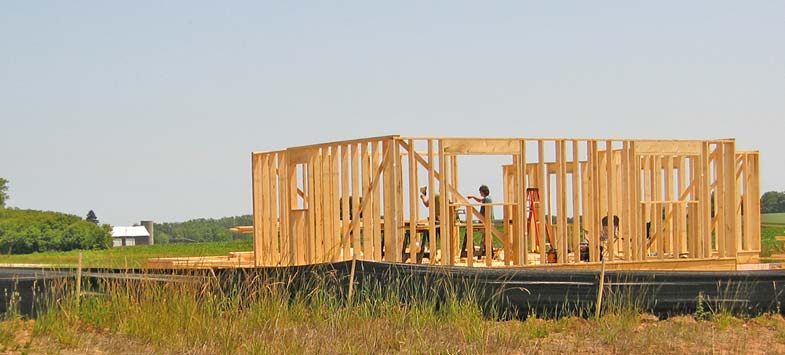During my day job as a web hosting provider, I’m frequently asked to explain in layman’s terms, “what is web hosting” and “do I need web hosting”? A client of mine, a web designer, was telling me a story about how utterly confused his clients became the more he tried to explain web hosting to them, using terms like domains, HTML, servers, web this and that. Eventually, his clients would just throw their hands in the air and accept it’s just beyond their understanding.
I told him, after years of trying to explain it myself, that most people will understand when you compare web hosting to something physical they can picture in their minds.
A web host is someone like Blue Host and Value Hosting.
I thought I’d share my story here and you’re most welcome to adopt it whenever you need to explain where web hosting and websites fit into the larger scope of the Internet.
Picture this.
Your Patch Of Dirt

The internet gives everyone the ability to find a piece of vacant land, plant their shovel deep into the fertile earth and stake a claim of ownership.
The web hosting provider is like a local council that has set aside a fine piece of vacant land for residential development. The web host segregates the land into smaller blocks and pours the concrete foundations for which we can build a house. If we were able to peer underneath the soil and foundations, we’ll see that the land is connected to power, pipes and has adequate road access. All we need to start building a house is laid out for us.
In this picture, the web host is not our house. The web host is the local council who provides the land and foundations upon which we will build our house.
In real terms, this means the web host is responsible for the physical servers, associated equipment, operating systems and the connection to the Internet.
Let’s continue with the analogy.
Build A House Upon The Foundations

Right, so the web host has set us up on a vacant block with the foundations already set. Next, we need a house. I’m sure you’ve guessed it. That’s our website.
Our website is the house that sits proudly in the middle of our property on top of the foundations built by the web host. In most cases, the web host will not build the house. Often, they’ll provide tools that we can use to build the house, but generally the house builder role goes to someone else.
Let’s give the role of master builder and architect to our web designer. The website/house is very important because this is our place of business, where we exchange goods or services for real world money. The web designer will take a look at the foundations provided by our web host, or choose a web host who has set up the foundations they are comfortable building upon. The web designer/architect/builder will construct the website/house to our specifications.
I’m sure by now I’m really stretching this analogy as far as it will go, but let’s persevere.
Street Frontage

Now that we have a wonderful brand new house, we want to tell people to visit us. A domain name is like the street address to our property. For example, www.inscribd.com is the address of this website. Domains can be registered through companies like Go Daddy.
So, a domain name is not our website per se, just as much as our street address is not actually our house.
Many businesses focus solely on their own house (their website) and neglect the garden outside – that is, social media like Facebook, Twitter and LinkedIn or YouTube.
When you engage your audience through social media, you can get a flood of new visitors and customers to your website.
Read A Social Media Garden Makes Your Website A Happy Home.

